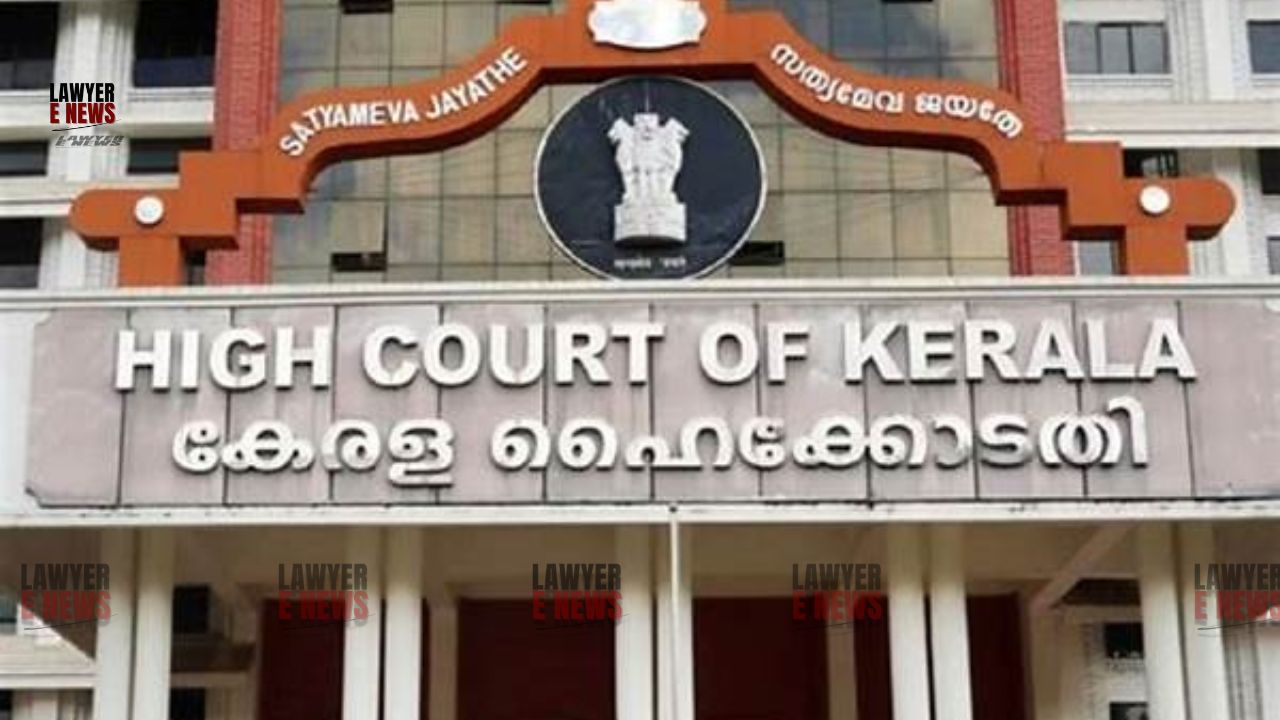-
by Admin
15 February 2026 5:35 AM



Tribunal Has No Power to Review Its Award Unless Fraud or Misrepresentation Exists," Holds Kerala High Court. Kerala High Court quashed the Motor Accidents Claims Tribunal’s order that had allowed the insurance company to recover compensation from the vehicle owner. The High Court ruled that the Tribunal lacked the power to review its award and that the absence of a fitness certificate for the vehicle was improperly applied to justify recovery. The court also emphasized that a newly registered vehicle is deemed to have a valid fitness certificate for two years under Rule 62 of the Central Motor Vehicles Rules, 1989.
The case arose from an accident on May 4, 2017, involving a Tata Ace Dicor vehicle owned by Prime Sanitaries. The accident led to the death of Mr. Bakkar, whose legal heirs filed a claim for compensation under the Motor Vehicles Act, 1988. The Motor Accidents Claims Tribunal originally awarded compensation to the claimants without directing any recovery from the owner of the vehicle. However, the insurance company subsequently filed a review application, arguing that the vehicle lacked a fitness certificate at the time of the accident, and requested recovery of the compensation from the owner.
The Tribunal allowed the review, ordered recovery from the vehicle owner, and based its decision on the newly introduced evidence regarding the lack of a fitness certificate. The vehicle owner, Prime Sanitaries, appealed the decision to the Kerala High Court.
Whether the Motor Accidents Claims Tribunal has the power to review its award under the Motor Vehicles Act, 1988.
Whether the Tribunal’s order of recovery from the vehicle owner based on the absence of a fitness certificate was justified, particularly in light of Rule 62 of the Central Motor Vehicles Rules, 1989.
Justice Easwaran S., delivering the judgment, first addressed the Tribunal’s power to review its orders. The court scrutinized Section 169 of the Motor Vehicles Act, 1988, and Rule 395 of the Kerala Motor Vehicles Rules, 1989, which outline the Tribunal's procedure and powers. The court found that neither the Motor Vehicles Act nor the Kerala Motor Vehicles Rules confer any specific power of review on the Tribunal.
No Power of Review Under the Motor Vehicles Act:
The court noted that while the Tribunal has certain powers similar to a civil court, such as taking evidence and enforcing attendance of witnesses, it does not have the inherent power of review unless there is fraud or misrepresentation. The court referred to the Supreme Court’s decision in United India Insurance Co. Ltd. v. Rajendra Singh (2000), which held that a Tribunal can recall an order only if it was obtained through fraud or misrepresentation.
"In the absence of any provision under the Motor Vehicles Act, 1988 conferring specific power on the Motor Accidents Claims Tribunal to review its order, the Tribunal does not have the power to review its order except under the circumstances of fraud or misrepresentation," the court held [Para 36].
The court further emphasized that the application for review, filed under Section 114 read with Section 151 of the Code of Civil Procedure, was not maintainable because the Tribunal is not a civil court and lacks jurisdiction to entertain such applications.
Deemed Validity of Fitness Certificate for New Vehicles:
Turning to the second issue, the court analyzed Rule 62 of the Central Motor Vehicles Rules, 1989, which provides that a newly registered vehicle is deemed to have a fitness certificate for two years from the date of registration. The court observed that the vehicle involved in the accident had been registered within two years of the accident, making the fitness certificate valid at the time.
"When a new vehicle is registered, it is deemed that it has a fitness certificate for a period of two years from the date of registration," the court stated [Para 38].
The court concluded that the Tribunal’s decision to order recovery based on the absence of a fitness certificate was legally erroneous, as the vehicle was deemed to be fit at the time of the accident.
The Kerala High Court allowed the appeal, setting aside the Tribunal’s award to the extent that it ordered recovery from the vehicle owner. The court ruled that the Tribunal lacked the power to review its own award and that the decision to order recovery based on the lack of a fitness certificate was incorrect.
"The award dated 28.05.2020 in O.P.(M.V.) No. 1042 of 2017 on the file of the Motor Accidents Claims Tribunal, Muvattupuzha, is set aside to the extent it orders the Insurance Company to recover compensation from the appellant-owner," the court ordered [Para 38].
The Kerala High Court's decision reaffirms the limited powers of Motor Accident Claims Tribunals and clarifies that they cannot review their own orders unless fraud or misrepresentation is involved. It also underscores the importance of Rule 62 of the Central Motor Vehicles Rules, 1989, which provides deemed validity of fitness certificates for newly registered vehicles. This judgment prevents unjust recovery from vehicle owners based on improper grounds and ensures adherence to statutory provisions.
Date of Decision: October 10, 2024
Managing Partner, Prime Sanitaries v. Pathumma & Others
